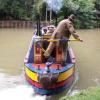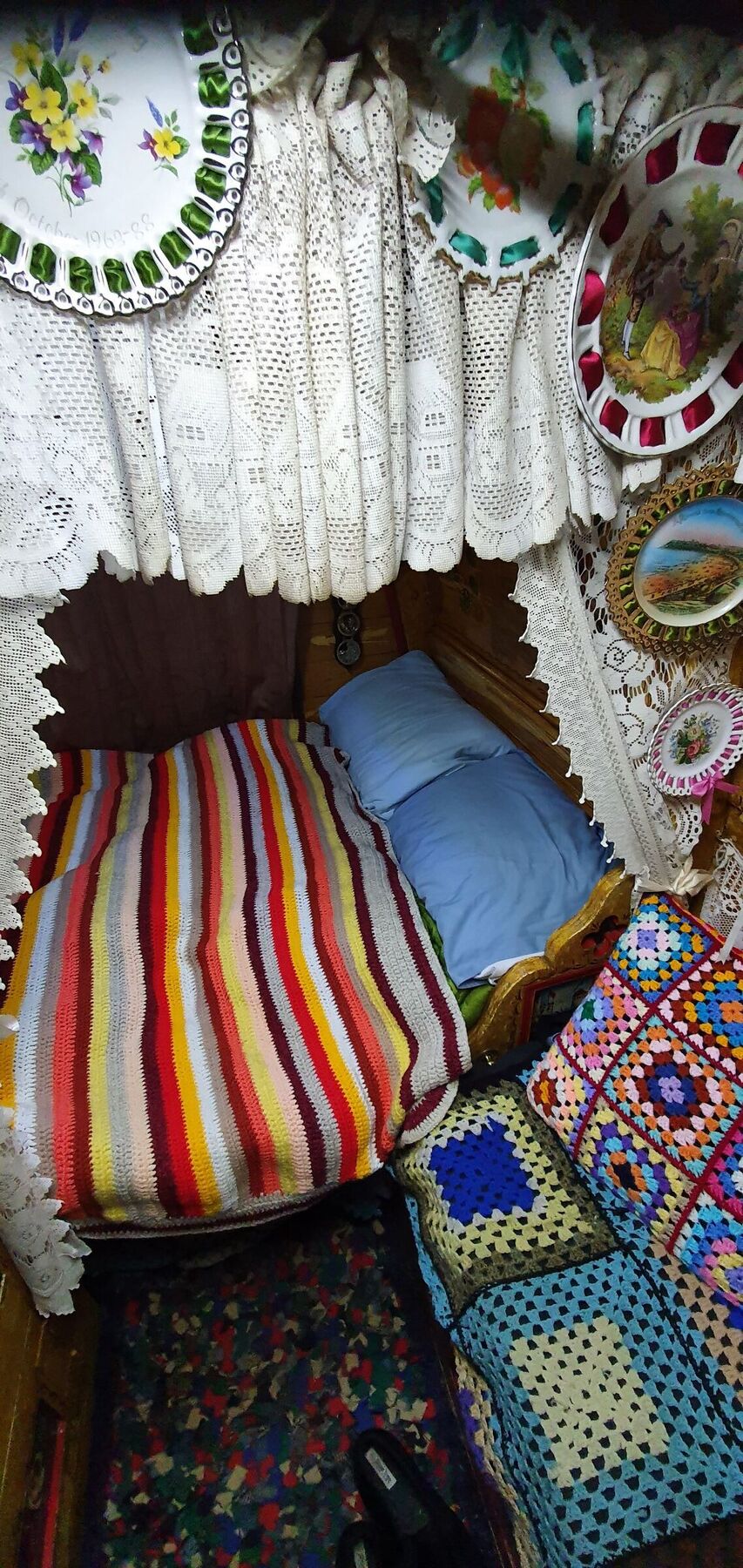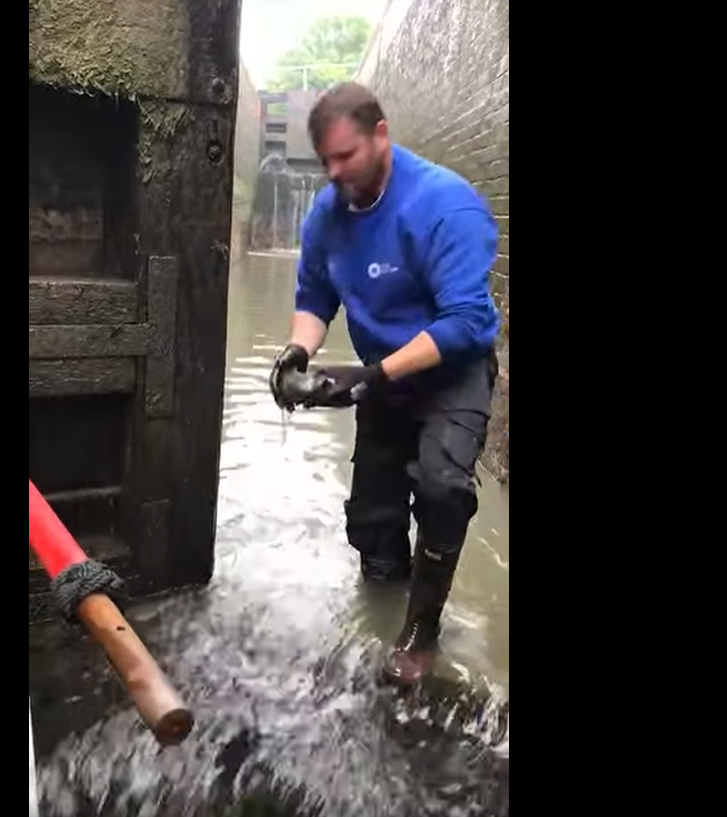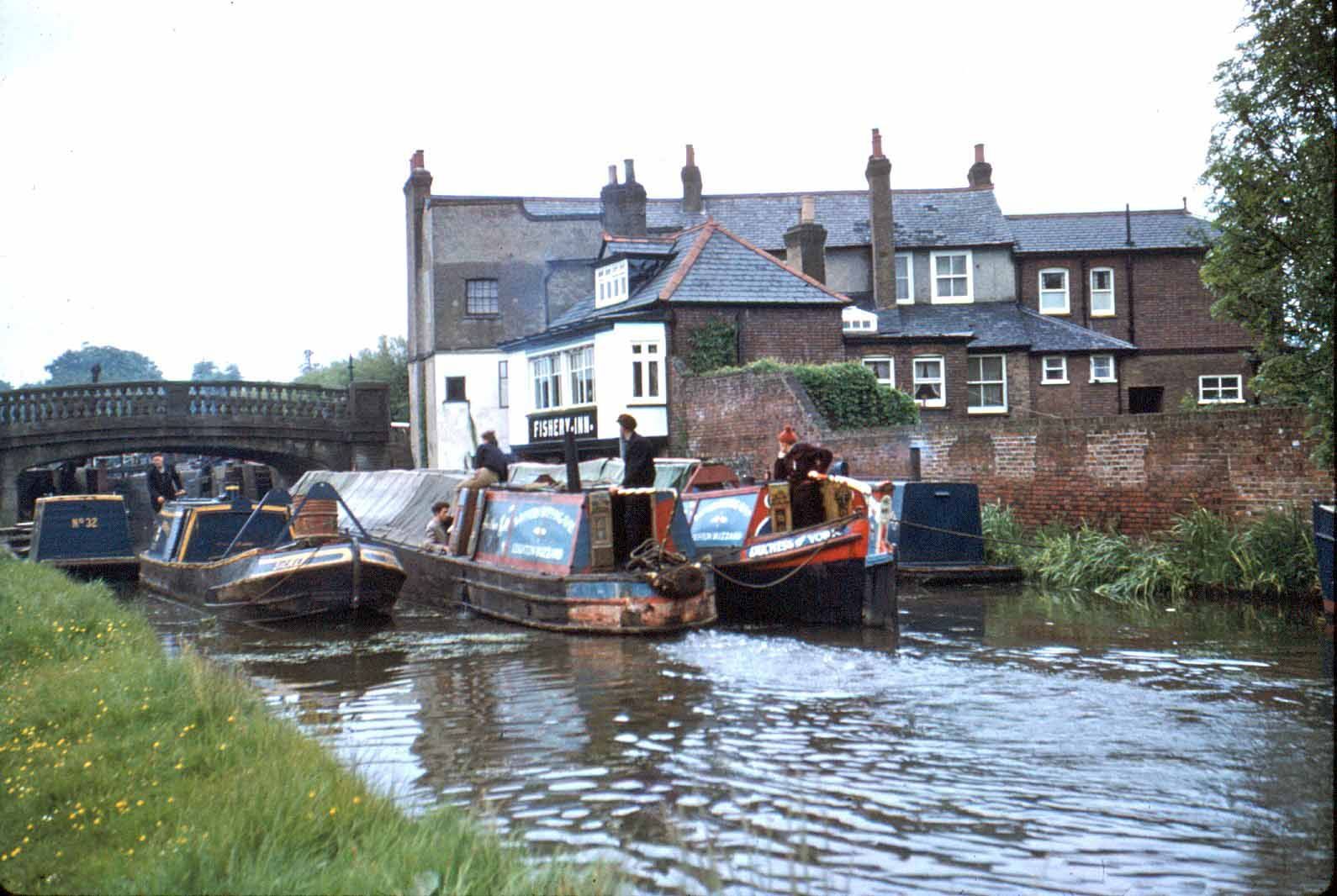-
Posts
38,163 -
Joined
-
Last visited
-
Days Won
81
Content Type
Profiles
Forums
Events
Gallery
Blogs
Store
Posts posted by alan_fincher
-
-
I agree with Tony. This certainly looks like a twin coil calorifier. Each picture shows a pair of connections one vertically above the other, and it would be surprising if one picture didn't show the connections for one coil and the other picture those for the other coil.
As well as Tony's "blow in them" method, you could also lay it flat on its side with a pair of connectors at the highest point, and pump water down one connector - it should then flow out the other one.
The lowest connector, with part of a plastic Hep2O still attached, would logically be "cold water in". The only thing that surprises me is just how close it is to the lower calorifier connection - no reason why it should not be, but I can't recall seeing one like that.
The other thing that surprises me is that all 4 calorifier connections have got an adapter which (assuming you don't remove them) means you would need unusually oversized pipe and connectors. I can't think why you would use very much larger hardware to connect to the calorifier than the "native" connections that the calorifier has.
It's obviously not new. Do you know its history.
-
Given the way things are going I suspect it will not be long before it is easier (and shorter) to publish a list of what canals are currently OPEN.
-
 1
1
-
-
-
On 04/07/2025 at 14:33, Wafi said:
One thing that puzzled me is that there are restricted hours at Hillmorton but not at Calcutt, even though that's draining the same pound. Not sure whether that's related to the stoppage at Stockton, maintaining access to Calcutt/Ventnor marinas, or for some other reason.
Many of the "candlestick" locks on the Grand Union Birmingham main line have (often automated) back pumps installed, meaning that water used through lockage gets pumped back above the lock involved.
If that were the case at Calcutt it would mean water levels there are to some extent self maintaining, whereas at Hillmorton once it has run down it can't be put back up again.
That said my ageing memory can't recall obvious signs of back-pumping at Calcutt, so I am rather doubting that this could be an explanation.
Anybody know?
-
There are stoppage notices for Marston Doles & Claydon.
However these show a start date of July 1st, so there isn't (quite) yet an actual stoppage. -
I've never heard of Craftsman Engines.
Can you provide a link to somewhere that has details of them, please?
-
1 minute ago, MtB said:
Are you trying to tell us the ram is not original?
So removing it would get the boater closer to 'as built'?
Only if you also put back the missing 31 feet 6 inches!
-
2 hours ago, MtB said:
Sickle looks far prettier without the ram and is no less "historic" as a result. If it ever gets cut off it should go in the hold for people to marevel at and say "what was THAT for?" and say "you're joking!" once they are told.

Yes, but Sickle had its Ram removed by British Waterways at some date around 1957. So as it is currently restored, it is historically accurate as it worked as a BW maintenance boat from that year onwards.
Tycho, on the other hand had its Ram left untouched by BW. and it even managed to retain it whilst working for Mattys.
Removing it would be contra to its history -- as a shortened Motor, it has never not had a ram.-
 1
1
-
-
5 hours ago, Paul H said:
Really hope it’s going to someone without access to a gas axe!
Now that would be more or less the ultimate act of vandalism....
But, on the other hand, they are more than welcome to get rid of the Blue Tops!-
 1
1
-
-
No obvious "gotchas" I can see, but I am always suspicious when the broker has had their own pre-sale survey done, (presumably by their own "tame" surveyor). I wouldn't trust anything in that survey, and realise you have already understand the need to commission your own.
A few other random points:-
I personally dislike having a completely squared odd counter stern. It is not helpful when trying to get going if the bow has been pushed away from the bank, but the stern is still touching it. A round stern will not attempt to run along the piling, but a square one may well try to.
Many people have a strong dislike of large area of painted wall paneling or ceilings. It has often been done as a cheap way to brighten a boat up for sale. It may be obscuring former damage from leaking windows or roof vents.
The PRM80 gearbox fitted to the engine is a basic "mechanical" changing type. They are OK, but often very clunky compared to the "hydraulic" types such as the PRM150.1 hour ago, Lady M said:Perhaps the boat was blacked after the survey to cover the associated markings.
And indeed scraping off of small areas of blacking to allow for the ultrasound testing.
Unfortunately if you have your own reputable surveyor they will also be scraping off similar areas, meaning you will need to at least re-black those areas, and probably better to re-black the whole to avoid a patchwork quilt effect.-
 1
1
-
-
A 74 foot boat will easily fit all Grand Union locks from London to Knowle (on the way to Birmingham)
That's not typical of other canals, but it could be boated over an area massively larger than many other live aboard boats on the GU!Our FLAMINGO is reputedly gauged at 71' 8", And we have yet to find a "full length" lock that it will not fit into.
-
20 hours ago, junior said:
If ever a boat was worth 'top dollar' then surely this fits the bill. When you look at the calibre of people involved in the restoration/maintenance, rare wooden cabin (that sounds like it's been built to last) and original National engine, then it's got several appealing aspects.
It would be interesting to know which unconverted Grand Union motor still in working trim represents the most expensive so far ever sold.
I haven't been keeping much track for quite a few years now, but am of the impression that few fetch in excess of £50K.
Any boat where the "asking" is £20K more than this would I think have to be something exceptional. Maybe Buckden qualifies - I admit it is an example I don't know a great deal about.
-
43 minutes ago, Stilllearning said:
I think someone HAS to be in charge.
Had you been going through (say) 50 years ago there wouldn't have been anybody other than boat crews controlling how things were done.
It sounds surprising now, but I don't recall things working any less well than is now the case with volunteer lockies.
-
1 hour ago, stagedamager said:
Undoubtedly a very nice boat. but £70,000 would seem absolutely top dollar for an unconverted boat.
-
34 minutes ago, Kingdom Isambard Brunel said:
Odd looking thing.
It certainly is, isn't it?
I can honestly say I have never ever seen anything remotely like it.
-
1 hour ago, 5239 said:
I’ve never seen the coal boats going around with fenders up, they seem to get on well enough,
…mind they generally know what they’re doing.
I'm not sure where you are looking, but certainly most of the GU fuel boats don't travel with front fenders deployed.
First image I found on Facebook....
-
1 hour ago, Ray T said:
No connection.
BRASS WINDLASS CANAL LOCK GATE KEY VINTAGE | eBay UKIt is in the USA,.
Selwyn Jordan"From an avid collector of nautical antiques"
Got to love the price!
-
On 05/06/2025 at 20:01, Blueboat said:
There is no requirement in the bylaws to have fenders permanently deployed. You must have them available ready to be deployed, and steerers of many 71' 6" working boats choose to operate like this to avoid having to lift them to fit a lock, and then redeploying afterwards.
-
On 05/06/2025 at 13:44, Jonny P said:
There are a number of captioning errors in A Canal People, presumably because they were done from memory 50 years after the events depicted.
Exactly - there are actually lots of errors.
It is entirely possible that the person captioned as Mrs Laura Carter is not actually a Laura or a Carter (or both). That would be no bigger a gaffe than some of the other known errors in Sonia Rolt's supplied captions. -
12 hours ago, Tony Brooks said:
Yes, but what is its SAE viscosity and API spec. Without those two bits of information, we can't rule incorrect oil out.
Yes, please say exactly which Smith and Allen oil.
Their web site is a bit overwhelming, but whist I can see viscosities that are a good match for your engine, most seem to have an API spec that is not.
Note a "more modern" oil is often an unsuitable oil in these older engines. -
-
11 minutes ago, Ex Brummie said:
As far as I'm aware, the only valuation an insurance company will accept is from an accredited surveyor.
..... but of course, you would need to pay for that.
I think that is correct.
Most irritatingly GJW are now, it seems ,only prepared to offer cover if you supply a full survey of everything. They used to accept a full HULL survey
-
It's probably also worth noting that very much more recently, (say within last decade), they have started using more than one shade of blue for the hire fleet.
Not the best resolution, but this from the CRT archives shows a pair of Wyvern Shipping Company boats operating on camping boat duties. The butty is clearly DUCHESS OF YORK, and the motor most likely HEATHER BELL. I feel sure I have seen other colour images from this era, but can;t at the moment recall where. I think this is probably not a bad rendition of the Company colours.
The tug leaving the lock is the SICKLE which we currently own.
Fishery lock, Grand Union, circa 1958.
-
 1
1
-
-
13 hours ago, AKD said:
No, it isn't the same person. The 'Laura Carter' who worked for Blue Line with the Whitlocks was Rose Whitlock's unmarried cousin.
Thank you - that;s what I had always assumed. So who, I wonder, was MRS Laura Carter?









JP3 For Sale
in Lister
Posted
My one observation is that the JP2 tends to be more sought after than the JP3, and hence to change hands at more money.
Nowt wrong with a 3 pot, of course, but I would want the twin.
Also when I fave see them in a GUCCCo boat engine room the JP3 leaves things rather too oovercrowned.